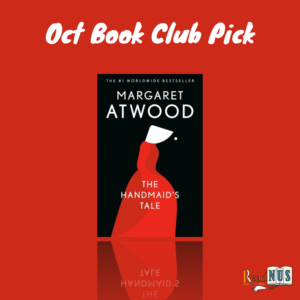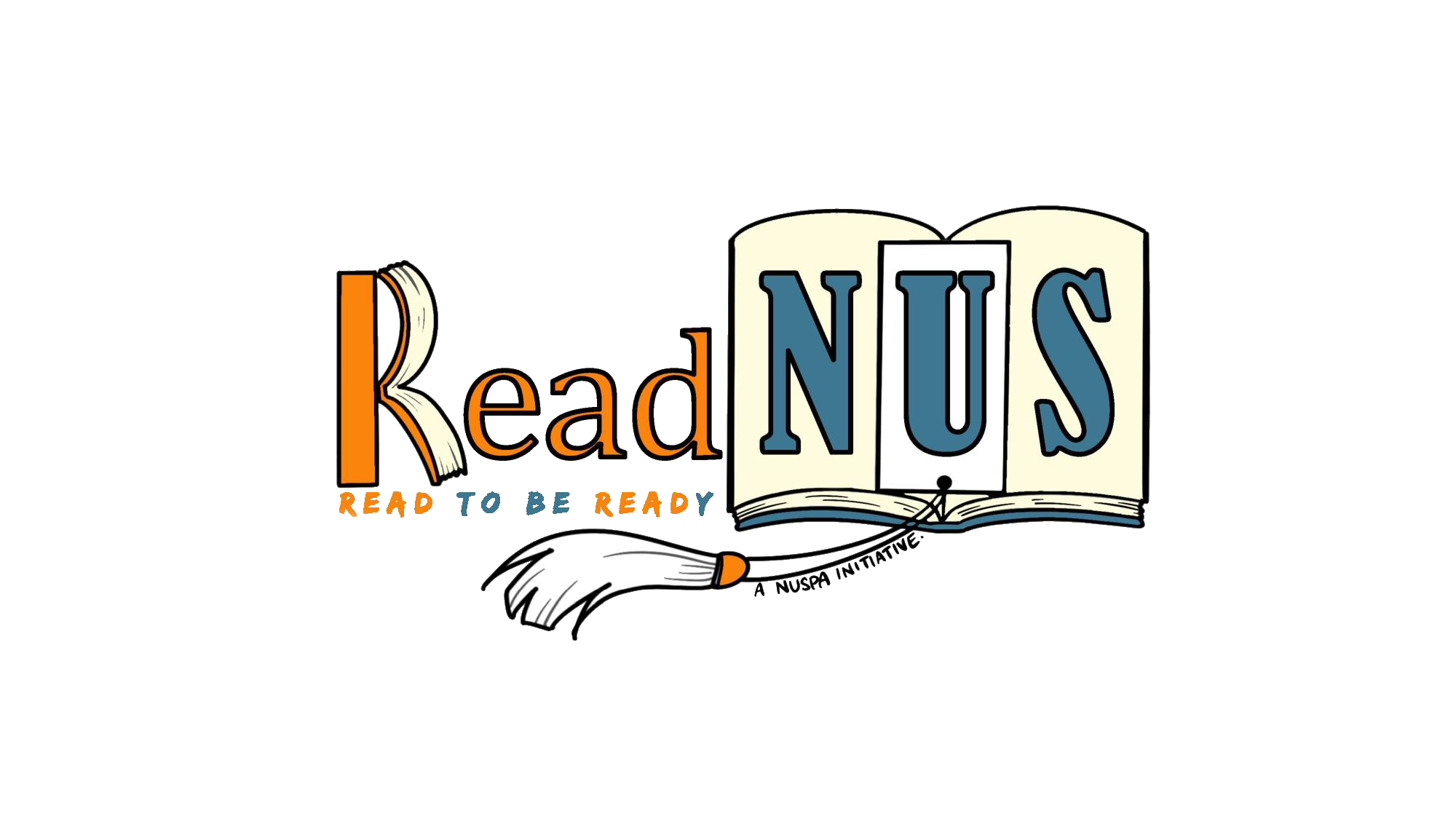October’s Bookclub: The Handmaid’s Tale

On 30th October 2020, ReadNUS held our 4th book club discussion session. In line with October’s book club theme on Halloween and horror, we decided to select The Handmaid’s Tale as the book of the month with its dystopian themed plot linked to the horror genre. This session also marks the first time that ReadNUS conducted a trivia quiz in the session, and a lucky reader managed to win BooksActually vouchers in the quiz to further their passion for reading. Through this session, readers were able to gain a greater appreciation about the book’s author, plot, and themes illustrated in the book while engaging in a lively discussion on topics such as US politics and feminism.
Book Overview
The book club discussion session started with the trivia quiz related to details of the book and facts about Halloween. This was followed by an introduction of the book’s author, Margaret Atwood. Atwood was born in Canada in 1939 and graduated from the University of Toronto with a bachelor’s degree in English before going to Harvard for her master’s degree where she also took courses in History. The knowledge she gained from these courses would eventually provide the inspiration for her plotline in The Handmaid’s Tale. Contrary to other award-winning novel writers, Atwood did not begin her career writing short stories, but started out writing poetry before progressing to short stories and novels. Other than The Handmaid’s Tale which was nominated for the Man Booker Award in 1986, Atwood has also won The Governor General’s medal for her 1966 poetry book The Circle Game and garnered numerous accolades for her works. It was no surprise when in 2019, Atwood finally clinched the Man Booker Award for her novel The Testaments, the sequel to The Handmaid’s Tale.
Inspired by her studies in History at Harvard, The Handmaid’s Tale incorporates many social, political, and economic elements from the 1980s and before which are still prevailing in the United States today. The book traces the journey of the protagonist, Offred, as the United States Government is overthrown by far-right religious fundamentalists and replaced by a regime known as Gilead that discriminates against women and minorities. At the start, Offred had attempted to flee to Canada with her husband and daughter but was separated from them and eventually forced to become a handmaid in Gilead, as she is one of the few remaining fertile women in the country. She is assigned to Commander Fred, a member of Gilead’s elite class, to conceive offspring that could hold the key to Gilead’s future. Through her intimacy with the commander, his servant Nick as well as other characters in Gileadean society, the hypocrisy and weakness of the regime is brought to light and Offred eventually leaves Commander Fred’s household for an uncertain future.
Themes

The book explores themes that are still prevalent in American society today, including the discrimination of minority groups such as African Americans, the gradual erosion of liberty as populism and complacency lead to gradual increases in power that political actors have over the people, and issues of gender rights that are heavily emphasized in the book. The period in which Atwood wrote the novel (1980s) is especially of note. At the time, a constitutional amendment granting equal legal rights to Americans regardless of gender (Equal Rights Amendment) had failed to gain the approval of the minimum number of states due to a concerted effort by the religious right to oppose what they saw as a law that redefined the traditional roles and morals of women in society. In addition, support of Christian Evangelical groups such as the Moral Majority had helped propel American president Ronald Reagan towards his 2 election victories. The book specifically addresses religion and gender by imagining a dystopian future where a group in the religious right takes over America and enacts policies to create a societal vision where women are subservient to men based on their interpretation of the Old Testament.
These themes also link to the current situation today where the 2020 US presidential election has been described as a clash of values: between conservatives who champion traditional values and resist widespread changes in society and liberals who seek the vision of an America in line with liberal values and norms. Finally, this novel also makes use of language to highlight the disparities in status and position between the elite men of Gilead and discriminated groups, as men are addressed by their rank and name while women are addressed only by their roles (such as handmaid). In addition, the Gileadean regime seeks to destroy identities of “undesirable groups” such as deformed babies who are termed “unbaby.”
Discussion and Conclusion

Finally, the discussions on the book started with 4 questions for readers to reflect and express their thoughts on. Readers shared their views relating to gender disparities and the US presidential elections, which was linked to the book’s plot of a right wing movement taking power in the United States to form Gilead, and the erosion of democracy seen by President Donald Trump’s disregard for many laws and support from a large number of Evangelicals. Most readers felt that while the book was published in 1985, the many themes highlighted in the book are still reflected in American society today. As such, the book highlights themes relating to the past and present of America and can also be predictive of a possible future in the United States. Most readers were also confident that the United States would not descend into autocracy even if President Trump won the 2020 elections as America has strong democratic and constitutional foundations, which would be hard for President Trump to damage unless an event that requires the use of wide-sweeping executive powers occurs. Finally, our readers concluded that the absence of a revolt by women in Gilead despite the removal of their rights was driven by their personal and immediate needs which included the need for protection and safety under the dystopian regime, and that men and women actually needed one another for society to function despite the disparities in power between them on the surface.
Once again, we would like to thank our readers for attending this book club discussion session and congratulate the winner of the book vouchers. For more updates on our book club events, visit our website https://readnus.com/ or follow us on our social media platforms @readnus on Instagram and Read NUS on Facebook.
By Bryan Chang
Assistant Programmes Director
